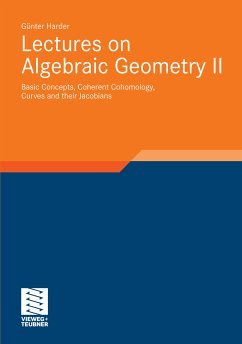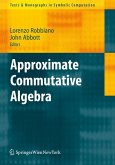This second volume introduces the concept of shemes, reviews some commutative algebra and introduces projective schemes. The finiteness theorem for coherent sheaves is proved, here again the techniques of homological algebra and sheaf cohomology are needed. In the last two chapters, projective curves over an arbitrary ground field are discussed, the theory of Jacobians is developed, and the existence of the Picard scheme is proved. Finally, the author gives some outlook into further developments- for instance étale cohomology- and states some fundamental theorems.
Dieser Download kann aus rechtlichen Gründen nur mit Rechnungsadresse in A, B, BG, CY, CZ, D, DK, EW, E, FIN, F, GR, HR, H, IRL, I, LT, L, LR, M, NL, PL, P, R, S, SLO, SK ausgeliefert werden.









